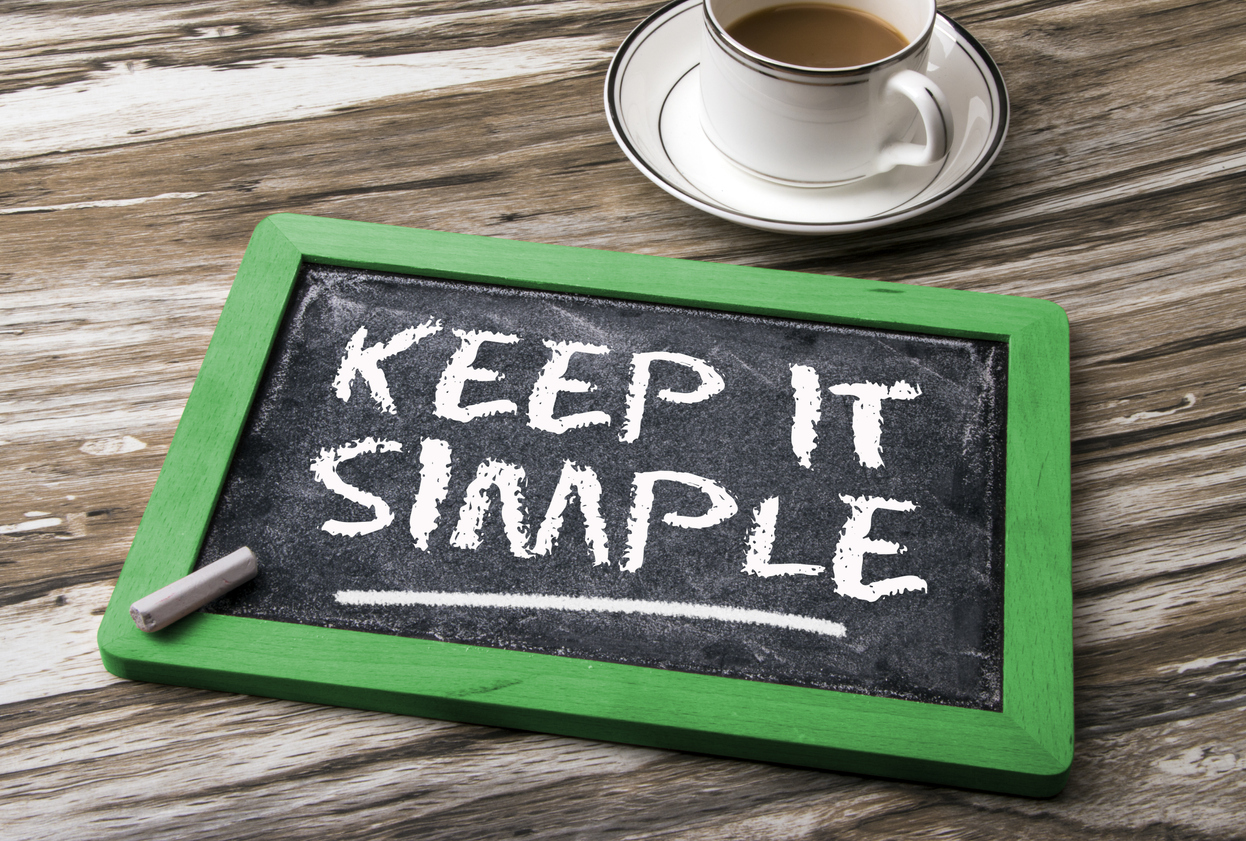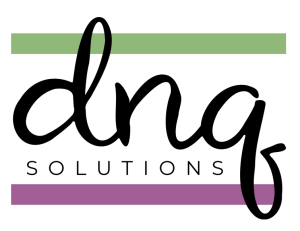
Yes. You read that right. There is a simple way to declutter any and every room/area/ closet/ cupboard – truly any area in your home you can think of. When I share it with you, I think you will say to yourself “Of course! I get it!”. Are you wondering why, if it is so simple, that people like me have jobs as professional organizers? The truth is that even when things are simple, we over-complicate them. Let’s review the simplest way to declutter specific items and a couple of common areas.
Clutter accumulates when we delay doing the things we know we should do.
Declutter Clothes
For instance, let’s pretend you received a new navy-blue sweater as a gift. You have a somewhat worn navy blue sweater in your chest of drawers. You might rationalize discarding or donating the older sweater because you say to yourself that you’ll wear the older sweater when you’re at home doing chores and not going anywhere. Now instead of removing the old sweater to make room for the new one you keep both sweaters. You delay following the one thing in and one thing out rule and now have two navy-blue sweaters.
Ah, but you say to me. They are not the same. One is worn and one is new.
You can keep the old sweater but if you always keep the new clothes without donating, recycling, or repurposing the older clothes you will have an over-full closet and chest of drawers.
The simplest way to declutter clothes is to determine how many of each type of clothes you can easily keep in the space you have. Once you have that number, it’s up to you to stick to it or the clothes become clutter.
Declutter Books
Books also create clutter. When you build a stack of books beside your bed because you intend to read them, they become clutter. Books tend to gravitate to horizontal surfaces. Unless you make an effort to put them back on the bookshelf, they can land on the floor or on a tabletop.
I am an admitted book lover. It’s rare that I open a book and don’t find something to appreciate about what the author is saying. I understand how hard it is to remove books from your home. I now read many books on a Kindle because the electronic version only takes up space digitally.
Decluttering books is difficult unless you create some rules for yourself.
My personal rules for books are as follows:
I keep the book if it is a timeless classic.
If I am positive I will refer to the book, it earns a place on my bookshelf.
The final rule is that if I know I will reread the book, I keep it.
Now, these are my rules because I struggle with releasing books. The simplest way to declutter books is to create your own set of rules. Once you have rules to follow, it’s easier to reduce the number you keep.
Declutter Paper
Paper is another thing that can quickly become clutter. Just like when you put a book down on a horizontal surface, when you put paper down more paper stacks on top.
Sometimes I print things I see on my computer. If it is something I know I will never need again it gets recycled or shredded. There are other times when that piece of paper joins others in a folder or a file in the filing cabinet.
The simplest way to declutter paper is to make decisions regarding your next step.
Is it something to keep – file it.
Do you need to read, review, or get more information before deciding? If so, create a temporary file, basket, or box for these papers. And make a note on the paper that indicates what you need. You can write your question or make a note of who to talk to so you don’t waste time rereading the document.
Declutter the Kitchen
Clutter accumulates in the kitchen when we allow the counters to become landing places for things that don’t belong in the kitchen and when we have gadgets and accessories we don’t use.
The simplest way to declutter the kitchen is to look at the things in the kitchen and ask yourself if they belong there.
Did someone else in the family deposit their belongings on the counter?
Consider having a basket for other people’s things that don’t belong in the kitchen.
Do you use the gadget or accessory?
If the answer is ‘No’ give it to someone who will, donate it, or sell it.
Sometimes emotions (or guilt) get in the way. Maybe you spent money on this thing or someone gave it to you. Ask yourself if the loss of counter or cupboard space is worth it.
Clutter also accumulates in the kitchen when tasks are left undone.
Consider this.
You’ve had a lovely meal which means there are pots, pans, and dishes to do. When you let these things linger on the kitchen counter, by the sink, in the sink, or on the stove top until the next day or longer they become clutter.
Do the dishes after each meal to avoid creating clutter in the kitchen.
Declutter Your Family Room
As I said before, clutter accumulates when we delay doing the things we know we should. Picture this.
You’re streaming a movie on your television, drinking a soda, glass of water or favorite beverage, and eating a snack. The movie ends and you get up to go to your computer in another room leaving the empty bag of popcorn, the plate, some paper towels, and a glass on the table beside the couch.
All that stuff is clutter.
It’s an eyesore.
When you walk in the room a few minutes later you see it but think to yourself you’ll take care of it later.
You know what to do to declutter the family room but don’t because you don’t want to in the moment. The simplest and best way to take care of things like this is right away. If you think you don’t have time, you’re mistaken.
It takes less than a minute or two to toss the bag of popcorn and put the plate and glass in the dishwasher.
In Conclusion
These are just a few examples of the simplest way to declutter some common areas in the home. The truth is that you can apply these examples to almost every area of the home. Professional organizers, such as I, can help create routines for you so that it becomes easier to identify clutter and to remove it.
One of the best things to keep in mind is to have the things in your home that support you and the way you want to live your life. Keep it simple. Reach out to me if you’d like to schedule a free phone consultation. You can also sign up for my monthly newsletter to get more tips like these.
Diane N. Quintana is a Certified Professional Organizer® ,a Certified Professional Organizer in Chronic Disorganization®, Master Trainer and owner of DNQ Solutions, LLC and co-owner of Release●Repurpose●Reorganize, LLC based in Atlanta, Georgia.


Great insights! Thanks for sharing.
I love all of these examples! There are areas in our lives and homes that we all have to deal with (or choose not to!) daily. But, I think creating rules for yourself is essential in all aspects of self-governance. Decluttering is just another aspect of the way we live our lives. Just as we have to set our values and rules around finances, health, and relationships, our homes also need rules to feel that we are in control. Thank you for a great article!
Thank you, Jana. I love what you said about rules helping us feel in control.
99% of my clutter is transitory and disappears within 24 hours. It’s the clutter next to where I sit in front of the TV because that’s where I open my mail and develop the pile of discarded outer envelopes and junk mail. I’ll toss it out before bedtime, but it might sit there all evening no matter how many times I get up because “I don’t wanna!” The simplest answer is, as you note, just doing it — doing the analysis, making the decision, taking action. But you have to want the organized, tidy, clean space more than you are willing to accept the disorganized, untidy, or dirty space.
After the snow today, my friend’s little boy texted me. (He’s practicing his socialization skills.) At the end of our conversation, I said, “Well, I’d better go pretend I’m a grown-up and make some dinner.” Later, after thinking about what I wrote, he came back and texted, “You ARE a grownup!” And I explained the nuanced difference between being an adult (something of a certain age) with a grown-up (someone who addresses their obligations, like paying bills on time or keeping house or cooking themselves nutritious meals) maturely and without complaint. I may be a professional at keeping things tidy, but I’m an amateur at actual willingness to be a grownup, uncomplainingly (especially when it comes to making food). Your approach, keeping it simple, is essential to making that step from being an adult to being a grownup. Making it simple makes it a little easier to fake it until you make it. 😉
Julie, willingness and an understanding that taking care of things is just part and parcel of life is HUGE.
When we adopt a ‘full-circle thinking’ approach to our actions, it can help to minimize clutter. You gave the ‘snack’ example. You’re watching TV and have some food and drinks nearby. When you get up to do something else, do you leave the dishes and food behind or complete the cycle before continuing to the next thing? If you consider the activity a cycle or process, you can identify that you’re only partially complete. You prepared the snack and watched your show. That’s not the end of the cycle. Now it’s time to ‘clean up’ and reset things as they were.
Thinking about what we’re doing as cycles and completing them can help minimize clutter. The more often we complete a process or cycle, the less ambient clutter we’ll have.
Absolutely! I call it closing the loop!
I’m the main cook in the home and I love to have a full pantry. So, decluttering the kitchen has saved me so much time and money every single day!
Thank you, Sabrina!
It’s nice to see that decluttering doesn’t have to be a “major project.” We can learn to take small, consistent action that ends up having mighty results.
I do keep the old pair of sneakers to wear in the mud and for yard work. I have a tough time letting go of any shoes because I have small feet that are hard to fit. But I now have two pair of old ones, so I think it is time to pitch the oldest ones. Not easy, but I know I won’t regret it once they are gone – I hardly ever do.
Seana, you hit the nail on the head. It’s the small consistent actions that keep clutter at bay.
I think for me paper is the hardest to control. Sometimes it’s because I’m not sure where to file it and remember to attend to it. Before I file a paper that needs action, I want to make sure I have a date on my calendar to attend to it.
That’s a great plan, Jonda